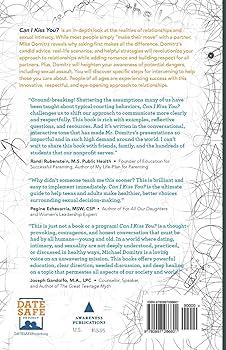In a growing wave of unrest and uncertainty, bishops in Togo are raising alarms about proposed changes to the nation’s constitution that they warn could exacerbate fears among the population. This warning comes amid a backdrop of political tension and civil dissent, as citizens grapple with the implications of possible shifts in governance. The Catholic Church’s leadership in the West African nation has voiced concerns that these constitutional alterations could undermine democratic principles and threaten the stability of Togo‚Äôs already fragile socio-political landscape. As the country stands at a critical juncture, these warnings from religious leaders may serve as a crucial reminder of the broader consequences that constitutional changes can invoke in a nation seeking to navigate its future.
Togo Bishops Raise Concerns Over Constitutional Changes and Societal Instability
The bishops of Togo have expressed significant apprehension regarding recent proposed amendments to the national constitution, which they believe could exacerbate societal tensions and lead to a deterioration of peace in the country. In a public statement, church leaders cautioned that these changes might undermine the fabric of democracy and reignite political instability. The clerics stressed that the ongoing dialogue surrounding constitutional reform should prioritize inclusivity and transparency, ensuring that all voices, particularly those of the marginalized, are heard and represented. They fear that neglecting this crucial dialogue could lead to disenchantment among the populace, further fracturing social cohesion.
Moreover, the bishops highlighted the rising climate of fear that is enveloping citizens as uncertainties loom over the potential impacts of these constitutional changes. To address their concerns, they called for greater civic engagement and collaboration among government, civil society, and religious institutions. They underscored the importance of fostering an environment where freedom of expression and human rights are safeguarded, as these are essential foundations for a peaceful society. The bishops believe that without concerted efforts to unite the nation under a shared vision of stability and justice, Togo may face significant challenges moving forward.
Implications of Political Tensions on Religious Freedom in Togo
The recent political upheaval in Togo has raised significant concerns among religious leaders regarding the protection of religious freedoms. As the government pushes for constitutional changes that many perceive to be consolidating power, the implications for various religious communities are becoming increasingly worrisome. Observers note the following potential impacts:
- Increased Surveillance: Tensions could lead to heightened government monitoring of religious activities, stifling free expression of faith.
- Risk of Marginalization: Minority religions may find themselves at greater risk of discrimination, as the government prioritizes a more dominant religious narrative.
- Fear of Reprisals: Religious leaders may hesitate to speak out on social justice issues for fear of persecution or repression.
The situation in Togo reflects a broader pattern seen across the continent, where governance issues often intersect with religious freedoms. Recent discussions among bishops highlight the concern that sustained political tensions may lead to a climate of fear, inhibiting the vital role that faith communities play in society. To illustrate this concern further, consider the following table that summarizes key factors affecting religious freedom amidst these political shifts:
| Factor | Implication |
|---|---|
| Government Policy Changes | Potential suppression of religious minority rights |
| Public Sentiment | Increased division among religious groups |
| International Response | Calls for intervention to safeguard freedoms |
Strategies for Dialogue and Peacebuilding Among Stakeholders in Togo
In light of the recent constitutional changes in Togo that have sparked widespread apprehension, it is crucial to foster effective dialogue among stakeholders. Engaging various community leaders, political figures, and civil society organizations will help create a shared understanding and collective vision for the country’s future. Key strategies include:
- Open Forums: Hosting community discussions to provide a platform for citizens to voice their concerns and suggestions.
- Consensus-Building Workshops: Facilitating workshops that bring diverse groups together to explore areas of agreement and develop joint solutions.
- Multi-Stakeholder Dialogues: Organizing structured dialogues involving government representatives, opposition parties, and non-governmental organizations to address fears and disparities related to the constitutional changes.
Moreover, leveraging technology can enhance engagement and participation. Digital platforms can be utilized for real-time communication and feedback, ensuring that a broader audience is involved in the peacebuilding process. Effective strategies may include:
| Strategy | Description |
|---|---|
| Virtual Town Halls | Utilizing video conferencing tools to allow citizens to engage with decision-makers directly. |
| Social Media Campaigns | Creating awareness and encouraging participation through targeted messaging on social platforms. |
Insights and Conclusions
In conclusion, the concerns raised by the bishops of Togo highlight the growing unease surrounding potential changes to the nation’s constitution. Their appeal for dialogue and caution resonates amid an atmosphere of uncertainty and anxiety among citizens. As the government contemplates constitutional revisions, the voices of religious leaders serve as a crucial reminder of the need to prioritize stability and inclusiveness in the decision-making process. The future of Togo hangs in the balance, and the call for unity and transparency will be fundamental as the country navigates this pivotal moment in its political landscape. As events unfold, vigilance will be essential to ensure that the hopes of the Togolese people for a peaceful and democratic society are upheld.







